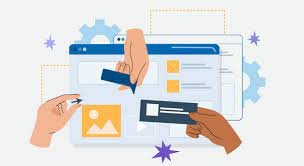How Do Hackers Get Your Friends To List

Learn how hackers get your friends to list. We’ll teach you how they hack. Hackers can get your friend’s list by different methods. They may be able to get it by hacking into your account. Another by getting access to your device and accessing your social media accounts. You can help protect yourself by taking precautions. You can do it by not sharing personal information about yourself online and using strong passwords.
Once hackers have your friend list, they can easily see all of the personal information that you and your friends share on Facebook. By gaining access to this information, hackers can potentially exploit it for their own purposes. Hackers can get your friends to list you by accessing your social media accounts, emails, or other personal information. They can then use this information to target you with spam. Be sure to keep your passwords secure and avoid clicking on links in unsolicited messages.
Methods: How Hackers Can Get Your Friends List
There is some hackers list who hack our friend lists. If you’re anything like most people, you rely on your friend list to stay connected with the people you care about. But what if someone maliciously accessed that list and started sending unwanted emails or messages? There are a few methods hackers can use to get access to your friend’s list. Here are some:
Social Engineering
Social engineering hackers can get your friends to list you by using clever techniques. They trick your friends into revealing their personal information. By knowing the names and addresses of your friends, hackers can easily collect this information without them realizing it. This allows cybercriminals to potentially steal identities, financial data, and other sensitive information. It’s important to be careful about who you share personal information with online. And always use caution when clicking on links or opening files from unknown sources.
Login Information
Login information hackers can get your friends list. If you use the same login information for multiple websites, your friend’s list on those websites is at risk. This means that hackers could potentially access your friend’s list on sites like Facebook, Gmail, and other places where you store personal information. To prevent this from happening, use a unique password. Don’t reuse login information from other sites.
Browser Extensions
Browser extensions are a great way to add new features to your browser and make your browsing experience more customized. However, with the right extension, hackers can also access your friend’s list. This means that malicious individuals could potentially get access to your personal information, such as names and addresses if you use a specific browser extension. It is important to be aware of which extensions. And how to protect yourself from malicious actors.
Facebook Groups
There are Facebook groups that hackers can use to get your friends list, including a group that has more than 200,000 members. This means that hackers can potentially get your email address. If you’re a member of the group they can do that. If you’re not sure if a group is safe to join, consider checking out the group’s page and seeing if it has any warnings or reviews from people who have been hacked.
Malicious Links
Hackers are always on the lookout for ways to exploit security vulnerabilities and gain access to people’s personal information. One way they do this is by setting up malicious links that take users to websites that ask for their personal information, such as their login credentials or contact information. If a user clicks on the link, hackers can then potentially acquire that person’s personal information.
Phishing
Phishing is a type of cyberattack that involves sending emails that look like they are from well-known companies or individuals, and asking the recipient to input their password or other personal information. While phishing is often done by people who want to steal your personal information, it can also be used to get your friends list. Phishing hackers can use this list to send fake emails that look like they are from your friends and tempt them into giving away their passwords or other personal information.
Reasons: Why Hackers Want Your Friend’s List
Hackers want your friend’s list because it holds a wealth of information. This information can be used to take over your Facebook account, steal your personal information, or even blackmail you. Be careful who you let into your Facebook world and make sure you are never without security measures on the site. Here are some more reasons:
- Hackers love to have access to your friends’ lists because it gives them a way into your personal life.
- By accessing your friends’ lists, hackers can learn about your personal preferences and interests, which could potentially give them an edge when targeting you in the future.
- If you don’t protect your friend’s lists, hackers may be able to access them without your consent or knowledge, exposing your personal information to them and other malicious individuals.
- In fact, hackers can use your friend’s list to gain access to valuable accounts and passwords.
- Finally, hackers can use the list to spam your friends with unwanted messages or advertisements. 6. You can protect yourself by being selective about who you share your information, with and by using strong passwords.
Prevention: How To Protect Your Friend’s List From Hackers
If you’re like most people, you keep a list of friends on your phone or computer. But what if someone hacked into your device and accessed that list? That could be dangerous for your friends, and it’s something you need to take seriously. Here are some tips on how to protect your friend’s list from hackers:
- Keep your device secure: Make sure your device is updated and up-to-date with the latest security features.
- One way to protect your friend’s list is to create a password for it that is hard to guess.
- You can also set up security measures on your accounts, such as two-factor authentication and virus scanning.
- Additionally, make sure you keep up to date on the latest security trends so you can be proactive in protecting your account.
- Keep your friend’s list up-to-date and secure by using the latest security features available.
- Don’t share your personal information, such as passwords, with your friends.
- In that case, always be aware of who is contacting you and beware of suspicious emails or messages.
Conclusion
In brief, hackers can easily gain access to your friend’s list by guessing your password or by using a phishing scam. To protect your information from the hacker’s list, be sure to use strong passwords and never click on suspicious links. Additionally, be vigilant about who your friend is on social media and be wary of any requests for personal information. By following these tips, you can help keep your data safe and protect your privacy.





